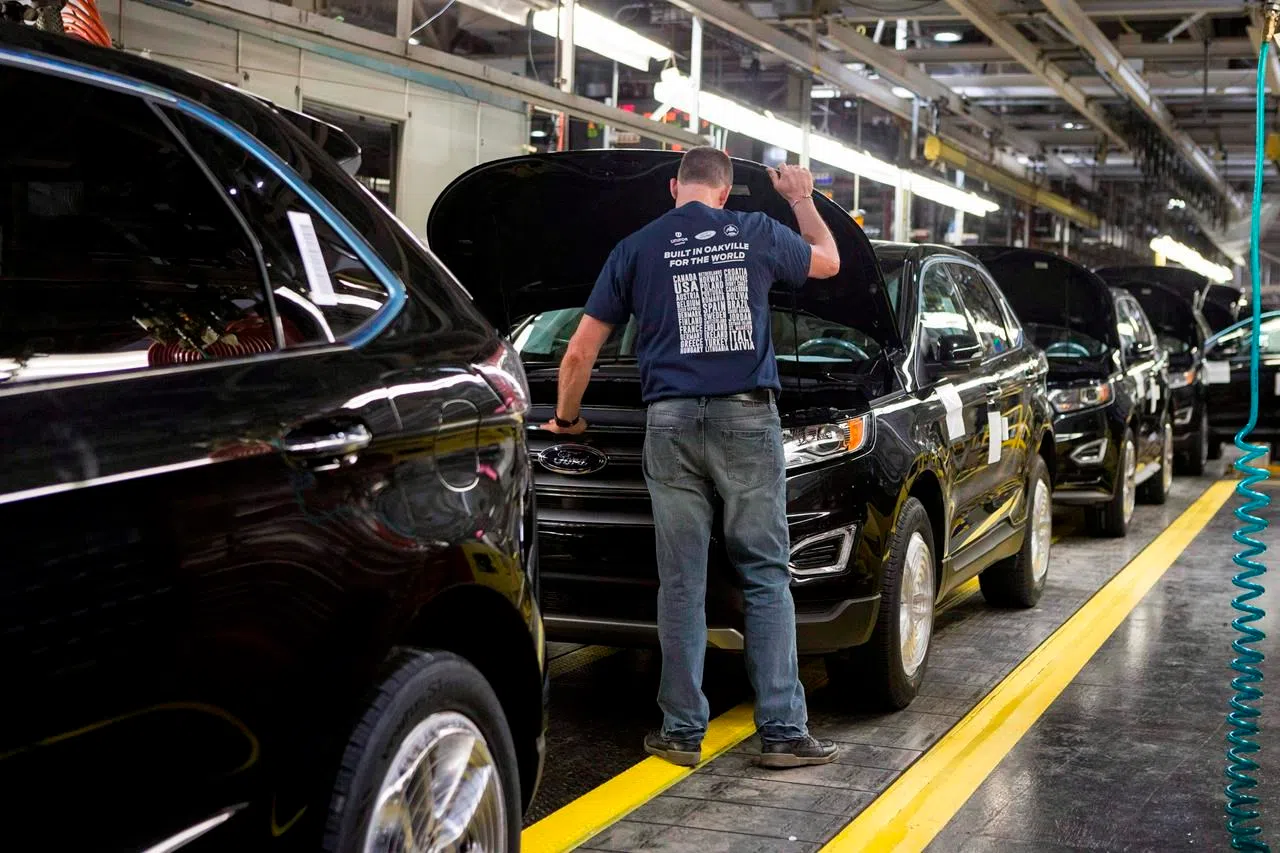
Assembly plant in Oakville, Ont., to build revamped Ford Edge, company says
Ford’s revamped Edge SUV will be assembled in a plant in southern Ontario, a move a union official said signals jobs will be secure in the region as the automaker invests in new technology.
Ford Motor Company of Canada said it has redesigned its Edge SUV for global export, with preparations already underway for production in Oakville, Ont. Ford plans to export the vehicle, which features an array of smart technology, to 100 countries in 2019.
However, company spokeswoman Lauren More said the company has no plans to hire more workers or change its operating pattern at the plant.
The move comes a year after Ford pledged $1.2 billion over four years to retool its Canadian plants, and create a research and engineering centre in Ottawa.
